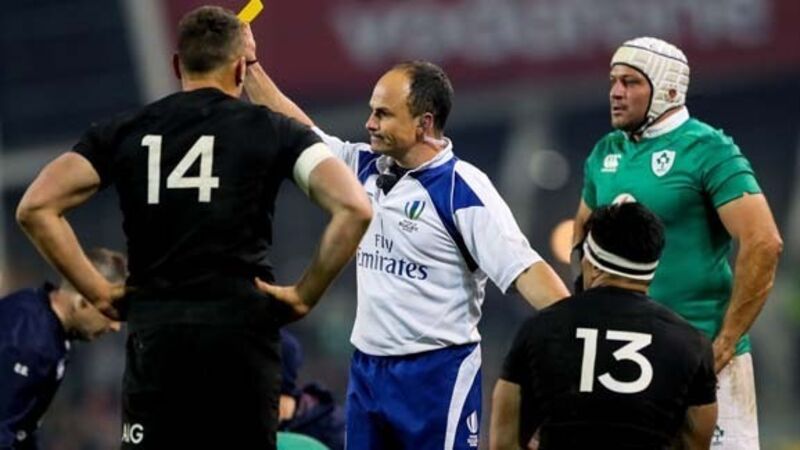Referee inaction leaves rugby at a crossroads

If one parks the Canadian game, given that an entirely different side took the field against the Canucks that day, it is difficult to recall a time when Ireland put two better, back-to- back, performances together than what we witnessed in those captivating contests against New Zealand this month.
An aggregate score of 50-49, with New Zealand coming out on top, seems just about right, especially when they out-scored Ireland by seven tries to five. Even more telling was the fact that they succeeded in keeping Ireland try-less at home, in front of a magnificently partisan crowd who did everything on the day to inspire another historic victory.












